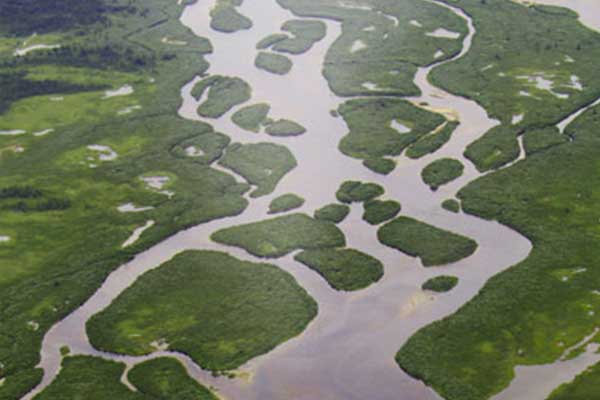
December 5, 2019 – OTTAWA, Ontario – The Canadian Parks and Wilderness Society (CPAWS) welcomes the federal government’s commitments in Thursday’s Speech from the Throne to protect 25% of Canada’s land and ocean by 2025 and to pursue nature-based solutions to fight climate change.
Bold action to tackle the dual crises of biodiversity loss and climate change in a more integrated way is urgently needed, and these commitments are an important step forward.
As stewards of 20% of Earth’s wild forests, its longest coastline, the biggest remaining wild rivers, and almost one third of its land-stored carbon, Canada has a significant global responsibility and opportunity to become a global conservation “superpower”.
In the lead up to the adoption of a new global biodiversity framework and targets under the UN Convention on Biological Diversity in 2020, there is an urgent need for global conservation leadership and Canada is well-placed to assume this role.
CPAWS is looking forward to continuing to work with the federal government as well as other partners, to deliver on these significant land and ocean protection commitments, building on the progress made over the past four years.
CPAWS particularly looks forward to continuing to work in partnership with Indigenous governments and communities to advance conservation within a framework of reconciliation, recognizing their leadership in conserving land, water and wildlife.
We are also committed to working with the federal government and others to design and implement nature-based solutions to fight climate change that will reduce emissions and support better management, conservation and restoration of forests, grasslands, agricultural lands, wetlands and coastal areas.
“CPAWS is pleased that the federal government has committed to protecting 25% of Canada’s land and ocean by 2025, and to pursuing nature-based solutions to climate change in today’s Speech from the Throne,” said Sandra Schwartz, CPAWS National Executive Director.
“Scaling up our conservation efforts based on science and Indigenous knowledge is urgently needed to safeguard all life on earth, including our own, and this is an important step forward. There’s no time to waste,” Schwartz added. “Building on the progress made over the past four years, and together with our 13 Chapters and with Indigenous and other partners, we are committed to helping deliver on these important conservation commitments across the country. Canadians deserve nothing less.”
Background
Recent global scientific reports have affirmed that the world faces a dual crisis of biodiversity loss and climate change that threatens the future well-being of people and wildlife.
- Habitat loss and degradation are the primary reasons that nature is in crisis, which is why protecting and restoring habitat in parks and other protected areas must be at the centre of our efforts to conserve nature.
- Reducing ecosystem degradation contributes to tackling climate change by reducing carbon emissions from land use, and can help people and wildlife adapt to changing climatic conditions;
- Evidence shows that in the long term at least 30% and up to 70% or more of our land and seascape needs to be protected or restored to a healthy natural state to reverse nature’s decline. Evidence also shows that what areas are protected, and how they are managed will be critical to their success in saving nature and providing benefits to people.
- Investing in protected areas results in proven economic benefits as well: for example, every dollar spent by federal, provincial and territorial governments on parks in Canada results in a $6 contribution to Canada’s GDP, and parks agency and visitor spending supports 64,000 full time equivalent jobs across the country.
About CPAWS
The Canadian Parks and Wilderness Society (CPAWS) is Canada’s only nationwide charity dedicated solely to the protection of our public land, ocean and freshwater, and ensuring our parks and protected areas are managed to protect nature. Since 1963, we have played a leading role in protecting over half a million square kilometres! Our vision is to protect at least half of Canada’s public land and water in a framework of reconciliation – for the benefit of both wildlife and humans.
-30-
For more information, please contact: Danielle Tremblay National Communications Director [email protected] or 613-569-7226 ext 232
